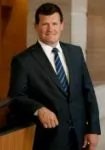Everyone's heard it before:
"This is the best phone on the market!"
"There's no faster internet anywhere!"
"Best looking car you'll see on the road!"
"X Co. has the greatest brains behind it!"
Legendary salesmen make legendary pitches, right? So, it's quite common for a salesperson, when describing his or her "greatest product in the world," to polish all the rough edges and pump up the tires. The legal / business world refers to such statements as "sales propaganda," "promotion," "dealer speak" or "puffing."
The Federal Trade Commission defines "puffing" as "'expressions that the consumer clearly understands to be pure sales rhetoric on which he should not rely in deciding whether to purchase the seller’s product."1 "Puffing ... is a term frequently used to denote exaggeration reasonably to be expected of a seller as to the degree of quality of his product, the truth or falsity of which cannot be precisely determined."2
Courts routinely recognize that sales talk or puffing "is universal and an expected practice" and that, as a result, it will not "amount to actionable misrepresentation." See, e.g., Republic Bank & Trust Co. v. Bear Stearns & Co., 683 F.3d 239, 248 (6th Cir. 2012) (citations omitted). According to the United States Court of Appeals for the Seventh Circuit, "such words as 'easy,' 'perfect,' 'amazing,' 'prime,' 'wonderful,' [and] 'excellent,' are regarded in law as mere puffing or dealer’s talk upon which no charge of misrepresentation can be based." Carlay Co. v. Fed. Trade Comm’n, 153 F.2d 493, 496 (7th Cir. 1946) (citations omitted). Legal encyclopedia American Jurisprudence provides the following:
Exaggerated statements as to value, quality, etc., do no more than express the opinion of the speaker, and the law does not impose strict accountability for those vague commendations of a seller’s wares that are manifestly open to differences of opinion and that do not imply untrue assertions concerning matters of direct observation, being rather in the nature of exaggerations and meaningless superlatives, the truth or falsity of which cannot be precisely determined. The buyer cannot have relied on such commendations and has no right to do so.
37 Am. Jur. 2d Fraud and Deceit § 80 (footnotes omitted). Consequently, courts are generally willing to turn a blind eye to an aggressive or exaggerated sales pitch when the seller is simply trying to peddle her wares.
But when does an exaggerated sales pitch cross the line into misrepresentation? That likely depends on the facts of each particular case. See, e.g., Cook, Perkiss & Liehe, Inc. v. N. California Collection Serv. Inc., 911 F.2d 242, 245 (9th Cir. 1990) ("'[P]uffing' is a question of fact that may not be determined by a court in a 12(b)(6) motion"); Shema Kolainu-Hear Our Voices v. ProviderSoft, LLC, 832 F. Supp. 2d 194, 209 (E.D. N.Y. 2010) ("[W]hen a statement is not obviously puffing, the question of whether it is fact or opinion is almost always a question of fact for a jury’s resolution"); see also 37 Am. Jur. 2d Fraud and Deceit § 70. The general rule is that sales talk containing "statements of fact" or "affirmative product claims" may be actionable under a claim of fraud.3 Likewise, "the 'puffing' doctrine has no application to false representations of material facts which are in their nature calculated to deceive and are made with intent to deceive."4 Consequently, statements such as the following have been found to be affirmative misrepresentations, rather than puffing:
- These cigarettes are "milder" than other brands. In re Liggett & Myers Tobacco Co., 55 F.T.C. 354, 375, 1958 WL 16652 (1958) (finding that assertions were "positive affirmations of quality" and more than "mere puffing.").
- We have the “world’s lowest price” on aluminum storm doors, windows and awnings. In the Matter of Better Living, Inc., 54 F.T.C. 648, 653, 1957 WL 16282 (1957) (holding that "the representation as to 'the world’s lowest price' is a statement of an objective actuality, the truth or falsity of which is not variable and can be ascertained with factual precision.")
- This apartment complex is "crime-free," police officers live here, and police vehicles frequently patrol the complex. Yuzefovsky v. St. John’s Wood Apartments, 261 Va. 97, 540 S.E.2d 134 (2001) (finding that evidence proved the statements to be "objectively false.").
- This copier machine is of "good quality," will not need "much service," and will "compete well" with its major competitor. Sharp Elecs. Corp. v. Shaw, 524 So. 2d 586 (Ala. 1987) (holding that such statements were fraud because the actual machine was untested and had serious performance and maintenance problems).
The line between "puffing" and misrepresentation can be blurry. While a salesperson is granted a certain amount of leeway in promoting her product, she should be careful not to offer specific, quantifiable facts which are false. The Federal Trade Commission and courts are cracking down on such representations in an effort to protect innocent consumers.
Footnotes
1 Consumer Protection and the Law § 10:9 (quoting Statement of Basis and Purpose of Trade Regulation Rule, Unfair or Deceptive Advertising and Labeling of Cigarettes in Relation to the Health Hazards of Smoking, 29 Fed. Reg. 8324, 8351 (1964)).
2 1 Consumer Law Sales Practices and Credit Regulation § 47 (citation omitted) (emphasis added).
3 See Consumer Protection and the Law § 10:9.
4 10 American Law of Torts § 32:26 (citations omitted).
The content of this article is intended to provide a general guide to the subject matter. Specialist advice should be sought about your specific circumstances.
